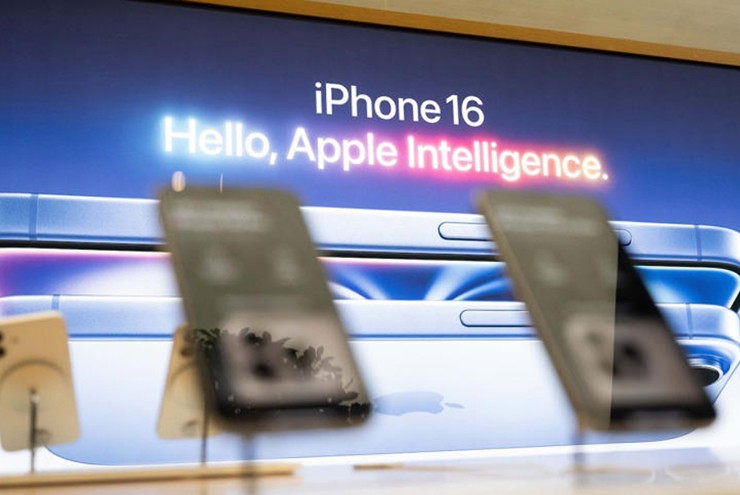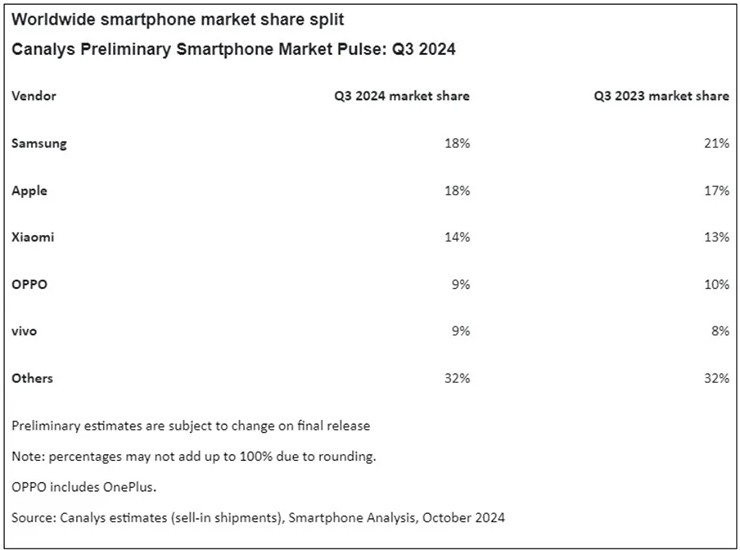The latest report from Canalys said global smartphone sales in the third quarter increased by 5% compared to the same period last year.

This marks the fourth consecutive quarter of growth for the smartphone market . Growth was largely driven by strong demand from emerging economies along with the early stages of the device replacement cycle in North America, China and Europe.
Apple and Samsung together account for 18% of the smartphone market share.
In Q3, Samsung and Apple both accounted for 18% of the global smartphone market, while Xiaomi continued to assert its position in third place with a 14% market share. Oppo returned to fourth place with a 9% market share thanks to strong growth in India and Latin America. Vivo also entered the top 5 in terms of sales thanks to double-digit growth and a 9% market share.
Strong demand for the iPhone 15 series, along with Apple's older models, played a key role in the company's performance this quarter, said Canalys analyst Runar Bjørhovde. The market shift to premium devices combined with a continuous innovation cycle since the pandemic is benefiting Apple, especially in strong regions like North America and Europe, Canalys said.
Consumers are looking forward to the year-end shopping festivals.
“Apple’s product diversification has helped the company shorten delivery times. Although the iPhone 16 initially had modest sales, it is expected to help Apple maintain good results in the second half of 2024 and boost growth in the first half of next year,” Bjørhovde shared.
According to Canalys, the gap between the top five smartphone vendors has narrowed, reflecting the fierce competition in the market. As the shopping festival blooms at the end of the year, many people are ready to wait for deals during major events such as 11/11 or Black Friday.
1. Experience Apple Intelligence
Apple is said to be rolling out the Apple Intelligence artificial intelligence feature on the iPhone 16 series in October via the iOS 18.1 update. However, this feature will not be available on the iPhone 14 Pro even though they will also update to iOS 18.1.
To run Apple Intelligence features smoothly, the device needs to be equipped with an A17 chip or newer along with at least 8 GB of RAM. Since the iPhone 14 Pro only has an A16 chip and 6 GB of RAM, it is not capable of supporting new AI features. Meanwhile, the iPhone 16 Pro is equipped with an A18 Pro chip and 8 GB of RAM to bring the best experience to users.
If you're looking for cutting-edge AI experiences, the iPhone 16 Pro is a worthy choice. On the other hand, the lack of support for new AI features makes the iPhone 14 Pro quickly obsolete.
2. Want a bigger screen
The iPhone 16 Pro features thinner bezels than ever and a larger 6.3-inch display (or 6.9 inches for the iPhone 16 Pro Max). This gives users more room to watch videos, play games, edit documents, and take online meetings.

